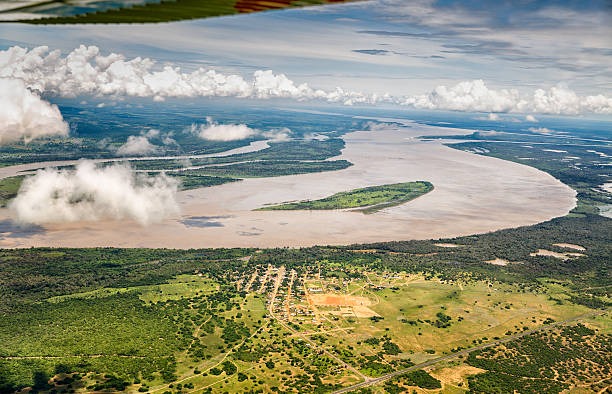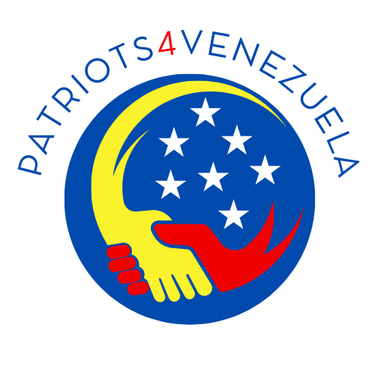How Maduro’s War Games Threaten Venezuela’s Soul
This article describes how Maduro's military threat to Guyana has a high probability of backfiring, threatening Venezuela to lose the Orinoco River headwaters, and with it, transforming much of Venezuela into a landlocked territory, just like Bolivia
Ignacio De Leon
5/19/20253 min read


Venezuela is on the brink—not just economically or politically, but geographically. Amid the headlines about sanctions, elections, and repression, a more profound danger simmers beneath the surface: Nicolás Maduro is gambling with the very soul of Venezuela—its rivers, its sovereignty, its future—by steering the country toward a reckless military confrontation with Guyana. At stake is not just the disputed Esequibo region, but potentially the Orinoco River basin itself, the ecological and symbolic heart of the nation.
Yes, that Orinoco. The river that gave life to Simón Bolívar’s revolutionary campaigns, that irrigates the dreams and farms of the Venezuelan plains, that defines the very shape of the country on every map. In a twisted irony, the government that claims to protect Venezuela’s sovereignty may be accelerating the country’s dismemberment.
The Illusion of Sovereignty, the Reality of Risk
Let’s be clear: the historic claim over the Esequibo has long been a complex legal and diplomatic issue. But Maduro’s approach isn’t diplomacy—it’s desperation disguised as patriotism. In December 2023, a staged referendum and a wave of nationalist propaganda attempted to ignite the public's support for annexing the Esequibo. Meanwhile, Venezuela’s economic and social fabric continues to unravel, with over 7 million citizens in exile and basic services collapsing under state neglect.
So why risk war? Because authoritarian regimes often trade legitimacy for spectacle. And what better distraction than the fantasy of recovering “stolen land”?
But this isn’t just about maps and minerals. By stoking military tensions, Venezuela is opening the door to a nightmare scenario: the internationalization of the conflict. If borders are redrawn by force—or even perceived threats of force—neighboring countries, international companies, and global powers will respond not with sympathy but with strategic interests of their own. Already, ExxonMobil drills oil off Guyana’s coast with U.S. naval backing. Brazil has mobilized troops. The Caribbean watches nervously. The region is being militarized—not to defend Venezuela, but to contain it.
And if that sounds like the beginning of a new century’s Monroe Doctrine, it is. Except this time, Venezuela isn’t the victim of imperialism. It’s the architect of its own isolation.
The Headwaters Gamble
What’s most alarming is how this political theater may backfire on a cartographic level. As Maduro beats the drums of war in the southeast, he overlooks a geopolitical time bomb: the Orinoco river’s headwaters lie dangerously close to the Esequibo region. By militarizing the zone, Venezuela risks triggering a cascade of international reactions that could, paradoxically, solidify Guyana’s de facto control not just over the Esequibo, but over the vital river systems that feed into Venezuela’s interior.
Think about it: if foreign powers begin to recognize Guyana’s sovereignty all the way to the Sierra de Pacaraima, the upstream control of Orinoco’s tributaries becomes a bargaining chip Venezuela no longer holds. Water, the last unconquered frontier of sovereignty, could quietly slip from our hands while we wave flags and chant nationalist slogans.
The Orinoco isn't just a river. It's an artery of identity, commerce, and survival. And it's being imperiled by the very government that claims to defend it.
A Patriotism of Preservation
True patriotism doesn’t look like soldiers at the border or red berets shouting from a podium. It looks like protecting what is ours—our people, our land, our rivers—through wisdom, not warfare. Venezuela’s strength was never built on sabers. It was built on Bolívar’s belief in unity, not fragmentation.
Maduro’s regime is not defending Venezuela’s borders. It is endangering them.
It’s time for Venezuelans—inside and outside the country—to understand the real cost of this geopolitical charade. We must raise our voices, not to cheer for war, but to demand the return of reason. We must pressure the international community to mediate, to de-escalate, and to remind Maduro that sovereignty begins with stewardship—not sabre-rattling.
If we lose the Orinoco, we lose more than a river.
We lose ourselves.
